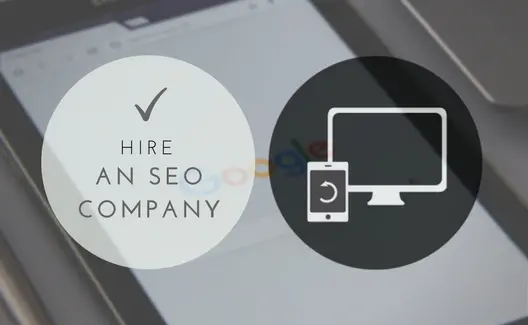Changes In Search: Fads vs. Long Term Trends
In a fast-paced world dominated by constantly changing consumer demands, it can be difficult for business owners to distinguish between marketing fads and long-term trends. When it comes to search engine marketing and SEO, implementing a “bad” strategy can lead to damaging results, and with new Google development requirements being introduced on a regular basis, many business owners don’t know they are holding onto “old” SEO and web design strategies; even worse, many companies are partnered with an SEO company that implement “black-hat” SEO methods or don’t keep their website up to date with the latest developments.

In addition to the issue of aging and harmful, “black hat” SEO methods, when searching for an SEO firm, many companies are welcomed by a diverse set of beliefs on what is “most effective” when it comes to SEM and SEO. With so many opinions on what is best in an SEO strategy and new ideas constantly flooding the web on how to improve local search rankings and conversion rates, how does a business owner or company determine which are fads and which are here to stay? Here are two long-term trends in search that deserve your attention and one harmful fad that most companies are not yet considering:
Trend: Mobile Takes the Market
It’s no secret or surprise that mobile sales are taking over the market. Most companies around the globe now have a mobile-friendly website, and marketing is becoming more geared toward the mobile user experience. As users change how they search the web via mobile and tablet devices, SEO techniques have evolved to keep up with new Google demands and remain competitive. So what exactly has changed in the mobile search world?
A majority of websites now feature a mobile friendly design; however, mobile configuration goes beyond design. Google specifies that responsive web design as the best method for implementing a mobile website. The user experience and above-the-fold content is also heavily scrutinized by Google, with “unplayable content” and broken mobile redirects and 404s as large threats.
Beyond on-site is how a mobile website appears in search results, and “mobile keywords” are becoming a thing of reality in the world of mobile search. When searching the web, mobile searchers use different terms to find what they need compared to traditional desktop search. Machine learning and search geographic targeting have changed what web users see in search results, but keywords targeting mobile users can be utilized by companies, large and small, in local and national SEO efforts and in the effectiveness of mobile Adwords campaigns.
Fad: The Pop-Up Game
 In Fall of 2014, Google started identifying websites with a “mobile friendly” label in search results. With local search rankings and mobile user conversion riding on the new Google label, a surge in mobile web design has led to nearly 85% of websites being mobile friendly. Because of the widespread adoption of mobile-friendliness and to “keep search results simple”, Google recently decided to ditch the “mobile-frinedly” label and is instead pursuing a better user experience.
In Fall of 2014, Google started identifying websites with a “mobile friendly” label in search results. With local search rankings and mobile user conversion riding on the new Google label, a surge in mobile web design has led to nearly 85% of websites being mobile friendly. Because of the widespread adoption of mobile-friendliness and to “keep search results simple”, Google recently decided to ditch the “mobile-frinedly” label and is instead pursuing a better user experience.
Google announced in mid-January of 2017 that it would begin to penalize pages with what they call “intrusive” content, also known as “interstitials”. In layman’s terms, Google is going to begin cracking down on websites that feature annoying ads and pop-ups that mobile users have to dismiss when trying to read a blog or visit a website. While this change is wonderful for the avid blog reader, it can have a negative effect on websites that use pop-ups for conversion. The intention of Google’s interstitial penalty is to keep the “purpose” of website content plain and obvious, especially above the fold and on mobile site pages.
Despite all of the fuss about pop-ups, some interstitials are still allowed per Google’s advisement. Some of these include pop-ups that require acceptance of cookie usage, verification of age or membership, as well as minimal, reasonably-sized pop-ups that don’t inhibit the user experience and hide the main content of the page. In short, feel free to use website pop-ups, ads, and other intrusive content at your own risk, but don’t be surprised by the Google penalties that may follow.
Trend: Local Search by Voice
 The mobile experience surged when Siri hit the market in 2011, and the launch of new voice-activated assistance products, such as Amazon’s Alexa, Echo, and Google Home signal big changes in the use of technology. But is the “voice” craze here to stay? While the visual aspect of technology usage will likely never fade, the increased use of voice assistance technology is projected to increase in the future. As the usage of voice technology increases, so will the need for optimization for local search and local maps.
The mobile experience surged when Siri hit the market in 2011, and the launch of new voice-activated assistance products, such as Amazon’s Alexa, Echo, and Google Home signal big changes in the use of technology. But is the “voice” craze here to stay? While the visual aspect of technology usage will likely never fade, the increased use of voice assistance technology is projected to increase in the future. As the usage of voice technology increases, so will the need for optimization for local search and local maps.
Websites will gain organic advantages for voice search via optimizing business location around the web, implementing detailed schema coding on-site, and placing an even greater importance on online reviews. Small businesses are finally catching up in terms of online reviews, which play a role in improving local search engine and map results and influence consumer decisions; with the “loss of the screen” associated with voice assistance technology, businesses will see an increased search reliability on online reviews.
So what do advancements in voice search mean for Google Adwords, Bing Ads, and other related paid web advertisements? Say you ask your Amazon Echo to hire a plumber to fix your broken sink; would you want your Echo to read you a list of 10 nearby plumbers or provide a paid ad for a plumber in a nearby city? Probably not. Ideally, your Amazon Echo would scan the affordability, online reviews, and availability of the closest plumbers to your geo-location and find the best match. Long story short, the use of local ads via voice search will be limited to retain user trust.
What You Should Do
 Unless you’re an SEO expert, determining effective strategies from fading fads is difficult. If you own a business or have a website that is geared towards generating income or maximizing brand exposure, the pressing demands of Google, improving your site for greater user experience, and to remain competitive in today’s fast-paced market can be daunting. Hiring an SEO company that specializes in search engine optimization for local businesses, SEO and development for e-commerce companies, and web design to drive conversion not only takes the stress off of your shoulders, but provides you with more time to further the objectives of your business.
Unless you’re an SEO expert, determining effective strategies from fading fads is difficult. If you own a business or have a website that is geared towards generating income or maximizing brand exposure, the pressing demands of Google, improving your site for greater user experience, and to remain competitive in today’s fast-paced market can be daunting. Hiring an SEO company that specializes in search engine optimization for local businesses, SEO and development for e-commerce companies, and web design to drive conversion not only takes the stress off of your shoulders, but provides you with more time to further the objectives of your business.
If you’re looking for an effective and local SEO company to provide you with ongoing services for your local or national business or website, the local SEO experts at My Favorite Web Designs in Mesa, Arizona, can help. Our team of Arizona SEO specialists have been providing local, national, and international companies with results-driven SEO strategies and tailored marketing services since 2005. Because website design and SEO work hand-in-hand, our experienced Arizona web designers can create a customized design to meet Google content requirements, optimize conversion rates and the mobile user experience. Call our Mesa web design and SEO office today at 480-335-1330 to learn more about our SEO and web design services.








